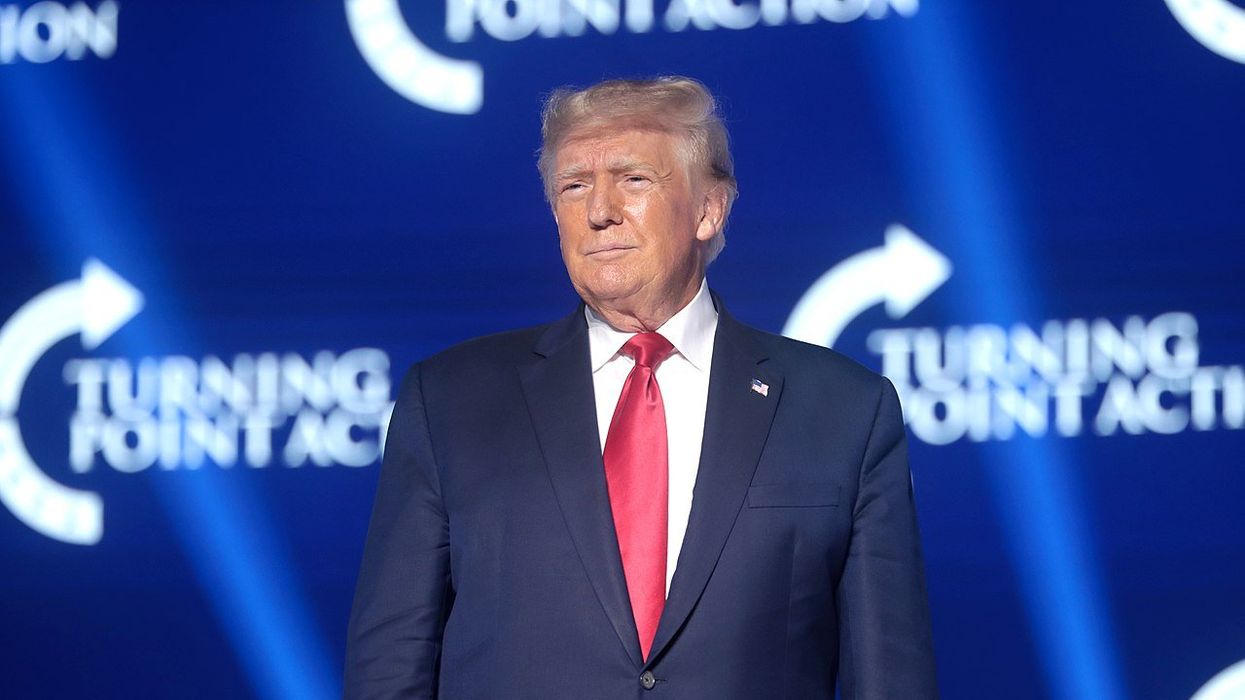'Intent to defraud': Legal experts detail reasons why Alvin Bragg's Trump case 'rests on firm legal footing'

Former President Donald Trump in Tampa, Florida in July 2022 (Gage Skidmore)
April 07, 2023 | 10:52AM ETBank
Donald Trump's presidency and its aftermath have brought about many firsts. Trump was the first president in U.S. history to face two impeachments and the first to lose an election by 7 million votes only to falsely claim that he didn't and make an unsuccessful attempt to overturn the election results.
Trump is also the first former U.S. president to be arrested on criminal charges while running for the presidency again. On Tuesday, April 4, Trump was arraigned on 34 felony counts in connection with Manhattan District Attorney Alvin Bragg, Jr.'s investigation of the Trump Organization's financial activities and alleged hush money payments to porn star Stormy Daniels. And Trump is also facing two criminal investigations from the U.S. Department of Justice (DOJ) and special counsel Jack Smith and one from Fulton County Georgia DA Fani Willis.
"Intent to defraud," under New York State law, is a key part of Bragg's case against Trump. It remains to be seen how jurors will feel about the evidence when the case goes to trial in 2024, but in an article published by Just Security on April 3, five legal experts — Ryan Goodman, Norm L. Eisen, Joshua Kolb, Siven Watt and Joshua Stanton — analyze the "intent to defraud" factor and lay out some reasons why they believe that Bragg has a strong case.
"It is accordingly proper, indeed necessary, to evaluate whether the criminal statute at issue is a close match for the alleged conduct in the case," they explain. "In that regard, an important question is whether maintaining false business records to conceal hush money payments in a political campaign meets the 'intent to defraud' element of the Falsifying Business Records statute, New York Penal Law §175.05 and 175.10…. We do not think this question will give the DA's office or (Judge) Juan Merchan much pause."
The legal experts continue, "Indeed, the jurisdiction in which this case will be brought — the First Department of New York — has settled law on the issue that defines 'intent to defraud' in broad terms that cover the allegations in the Trump case."
Goodman, Eisen, Kolb, Watt and Stanton go on to describe what courts in New York State have had to say about "intent to fraud" and why it is relevant to Bragg's case and allegations of "falsifying business records to conceal hush money payments."
"Applying this broad concept of 'intent to defraud' in false business records cases," they note, "New York state courts have found such intent in a wide range of cases, including when a defendant: made covert contributions to a political campaign, covered up an alleged rape, misled the relatives of a patient about the individual's treatment, operated a motor vehicle without a license, obtained credit cards through false documents but with no proof of intention to miss payments, frustrated the regulatory authorities of the New York City Transit Authority, and much more….. In short, the Manhattan DA's case rests on firm legal footing."
READ MORE: Donald Trump indictment is a massive 34 counts
Read Just Security's full article at this link.